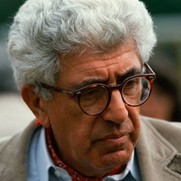 Barry Commoner, a pioneer in the ecology movement and Citizens Party candidate for president, earned a spot on the Oregon ballot on this day in 1980 with a speech before an enthusiastic crowd of 1,100 cheering supporters in Portland’s Memorial Coliseum.
Barry Commoner, a pioneer in the ecology movement and Citizens Party candidate for president, earned a spot on the Oregon ballot on this day in 1980 with a speech before an enthusiastic crowd of 1,100 cheering supporters in Portland’s Memorial Coliseum.
The crowd, which included a visible contingent of Gray Panthers, the senior citizens advocacy group founded by Philadelphia activist Maggie Kuhn in 1970, fulfilled the state’s requirement for a nominating convention of 1,000 delegates needed under Oregon law to qualify a presidential candidate for the November ballot.
According to Commoner, the Portland convention was the largest gathering of Citizens Party supporters since the party’s inception in late 1979.
In his address to the convention, the 63-year-old Citizens Party candidate blamed the country’s social and economic ills on the “stranglehold” maintained by large corporations on the U.S. economy and American politics, telling the delegates that corporate leaders had “bought their way into political power by using the profits taken out of the hides of working citizens.”
Large corporations, he proclaimed, had demonstrated that they’re unable or unwilling to solve society’s problems.
He also had a message for the twin, corporate-dominated parties in the nation’s capital: “If you can’t do it, move over. We’ll do it.”
As Peter Dreier observed in his terrific new book, The 100 Greatest Americans of the 20th Century: A Social Justice Hall of Fame, Dr. Commoner had long been “frustrated by the influence of corporate America over both political parties and by the failure of the mainstream environmental movement to join forces with other progressive movements to heed his warnings and challenge the basic tenets of the free-market system.”
Joining the Libertarian Party’s Ed Clark whose supporters put his name on the ballot by means of a petition drive earlier that year, Commoner was the fourth presidential candidate to qualify for the Oregon ballot in 1980. U.S. Rep. John B. Anderson of Illinois, running as an independent, also eventually qualified for the ballot by turning in more than 50,000 signatures — 38,892 valid signatures were needed — on August 21, shortly before the state’s filing deadline.
Following closely on the heels of California and Washington, where party activists in both states had completed their petition drives earlier that weekend, Oregon became the nineteenth of twenty-nine states in which Commoner and his running mate La Donna Harris, an outspoken feminist, Comanche activist and wife of former U.S. Sen. Fred R. Harris of Oklahoma, qualified for the ballot.
Though it failed to “reclaim the American dream from the predators who’ve stolen it,” as writer Studs Terkel boldly predicted in his stirring keynote address at the party’s founding convention in Cleveland earlier that year, more than one in every 100 Oregonians who showed up at the polls — 13,642 to be exact — proudly cast their ballots for the Citizens Party ticket on November 4, giving Dr. Commoner his strongest showing in the country.



Follow Us